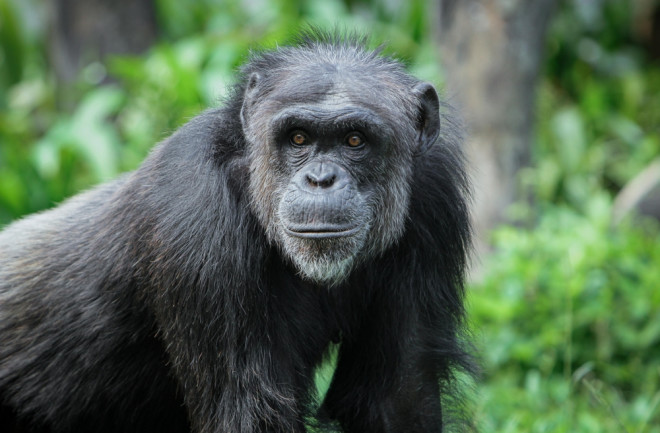While it might seem like masturbation would be a self-absorbed human endeavor, it’s actually widespread among the whole animal kingdom. We didn’t invent it, and it likely has roots deep into our evolutionary pasts.
And although auto-eroticism has long been taboo, there’s a whole slew of fascinating and intriguing case studies of animal masturbation and their origin stories.
How Do Animals Masturbate?
Many creatures across the animal kingdom don’t even have hands and digits to masturbate with, but it hasn’t stopped them from becoming enterprising and resourceful onanists with a paw, a foot, a flipper, a tail, or a mouth. There are examples of animals masturbating before sex, after sex, and sometimes even instead of sex.
Read More: Do Animals Fall in Love?
What Animals Masturbate?
Masturbation behavior is observed in a variety of animal species. Some of the animals known to engage in masturbation include:
Horses
Male horses, donkeys, zebras, and deer are often observed having spontaneous erections and then repeatedly slapping, bouncing, and pressing their penises against their own abdomens in the hopes of reaching an orgasm. Male Asian elephants have been recorded doing the same.
Porcupines
Porcupines, who can easily curl up into a ball, can lick their own penis and give themselves self-fellatio. This is seen in bats as well (in addition to homosexual fellatio with other males in the roost).
Birds
Birds don’t even have genitals, they have a cloaca — which is a single hole that birds use to urinate, defecate, give sperm, take sperm, and lay eggs — and it doesn’t have many nerve endings. Yet they’re known for humping branches, leaves, mounds of dirt, and rocks. In a 2008 study, one Dovekie bird was observed “mounting a clump of moss in the prelaying period” 10 times one year, and three times the following year.
Read More: 5 Animals That Mate for Life
Do Primates Masturbate?
Matilda-Jane Brindle, an evolutionary biologist at University College London in the U.K., has created a database of primate masturbation. According to an analysis of the database, self-pleasuring acts have been observed in over 80 species of primates, and they happen in both females and males, both in the wild and in captivity, at all ages.
Not all primates love self-love, though. “It's certainly more common in monkeys and apes than in lemures and lorises, for example,” says Brindle.
When Did Primates Start Masturbating?
When Brindle used statistical modeling to extrapolate the data from modern primates into the past, her results suggested primates as long as 40 million years ago were already masturbating.
“There's a very, very strong likelihood that the ancestor of all monkeys masturbated,” says Brindle. “The ancestor of all apes masturbated, which means that Neanderthals probably masturbated.”
Read More: Casual Sex Play Common Among Bonobos
How Masturbation Can Boost Reproductive Success
According to Brindle’s analysis, for males, masturbation and high levels of competition are correlated — the two have coevolved. There are two hypotheses as to why.
Masturbation in males can improve their reproductive success by making sure that their sperm is fresh for mating and has been recently replenished.
In a study from 2021 on Japanese macaques, younger macaques who seldom got a fortuitous chance to mate were seen masturbating more often than elders who were highly promiscuous. When analyzing the sperm, the scientists found that the longer it had been stored, the larger its volume and total sperm number became, and the lower the sperm swimming velocity and percentage of vital sperm. They concluded: “Lower-ranking males attempt to make the best of their limited mating opportunities … by investing in ejaculate quality as opposed to quantity.”
If males are constantly aroused and ready to ejaculate, it might also mean they can speedily deliver their sperm to a mate during copulation before any higher-ranking males or competition comes to interrupt the act and throw them off their mate.
Another hypothesis that Brindle is still analyzing is masturbation could be a signal to help animals display their vigor and attractiveness. “Females or males might masturbate to say I'm receptive to having sex, come over here and have sex with me,” says Brindle.
Read More: 8 Clever Ways Female Animals Control Reproduction
Do Females Masturbate Less Than Males?
Data from Brindle’s overview seems to suggest that female masturbation is less common than male masturbation. But she is adamant that scientists throughout the decades have collected less data about female sexual behaviors in the animal kingdom compared to their male counterparts; it’s also harder to recognize female masturbation and arousal.
“Female data are crucial for understanding things just as much as male data,” says Brindle.
Read More: Why Females Sometimes Eat Their Mates After Sex
What If Animals Masturbate Just Because It Feels Good?
While it’s likely that animals have evolved health, social, and reproductive benefits from masturbation, animals also may do it could simply because it feels good.
“These [hypotheses] are all valid, and they are valid in different species, and they may also play a role, but I don't think that they are the ultimate reason why animals masturbate,” says Johannes Fuss, a sex researcher at the University of Duisburg-Essen, in Germany. “We think that it's all just basically based on sexual pleasure.”
Of course, finding out that stimulating your genitals is pleasurable might also motivate toward having sex, and ultimately, reproduction.
A common thought that most researchers seem to agree on, though, is that more research in this realm is needed. “It absolutely blows my mind that nobody's done this study before,” says Brindle. “Masturbation is such a common behavior. I don't understand why no one's looked at this from an evolutionary perspective before.”
She hopes that, moving forward, more research will help upend the taboo. “People think that masturbation is kind of this weird human aberration, that we should be above it,” says Brindle. “Clearly, though, this is a natural sexual behavior.”
Read More: Mates for Life? The More We Learn About Animal Sex, the Rarer True Monogamy Becomes

